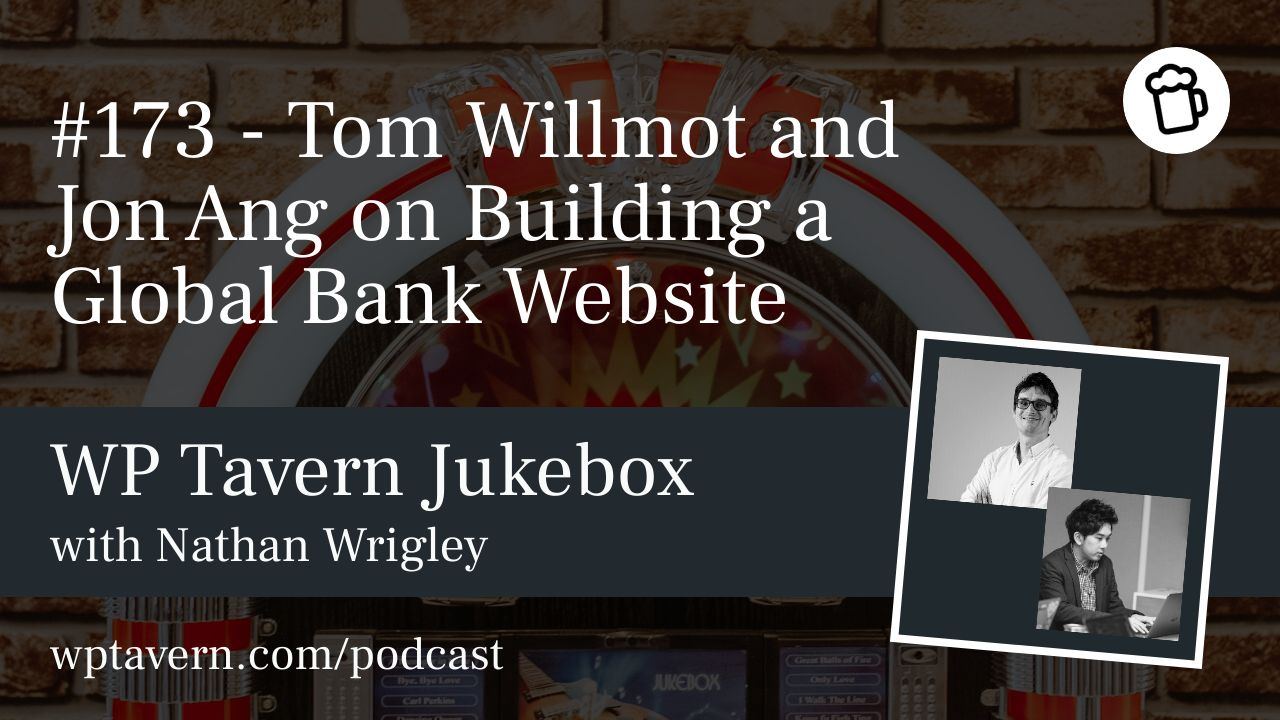Nathan Wrigley interviews Tom Willmot and Jon Ang of Human Made about their long-term project with Standard Chartered, exploring how WordPress was used as the primary web platform for a global bank.
Background
Human Made is an enterprise WordPress agency co-founded by Tom Willmot and his brother Joe. Tom and Jon have worked with Standard Chartered since 2016, evolving an initial prototype into a platform that now serves as the bank’s main web platform across markets. Their relationship is ongoing and agile rather than a finite project.
Scale and scope
Standard Chartered operates in about 70 countries and roughly 150 markets, with around 85,000 employees. The web platform handles hundreds of millions of page views per month and about 95%+ of the bank’s web traffic runs through WordPress. Approximately 500 people use the CMS regularly across central teams and country marketing teams. There are roughly 30 languages in use; the bank organized sites by market rather than translating centrally.
What WordPress is used for
The WordPress installations are not handling financial transactions, but they do provide mission-critical content and messaging. Customer messaging for internet banking apps, investor data visualizations, and other important pieces of the customer experience are generated from the CMS. The platform is used for corporate sites, wealth banking, investor relations, and more.
Compliance and security
Banking brings strict compliance requirements. Human Made pursued industry-specific compliance (OSPAR) and were audited (by Deloitte), which helped satisfy banking governance concerns. That process was costly (Tom mentioned roughly a six-figure expense) but valuable. Human Made also holds SOC2 compliance and emphasizes enterprise-grade security practices. They work closely with Standard Chartered’s security teams and contribute security improvements back to WordPress. Human Made includes contributors to the WordPress Security Team, which helps close the loop between enterprise fixes and community security.
Convincing enterprise clients
In 2016, a major hurdle was convincing enterprise stakeholders that WordPress could scale securely. An internal champion at Standard Chartered who wanted WordPress made a big difference. Today WordPress is more commonly considered alongside other CMS options. Human Made highlights two main selling points for enterprises: flexibility (easy integration with unique systems and workflows) and usability (the editor experience is far better than many enterprise CMS backends). The usability advantage is often a profound transformation for teams used to clunky internal tools.
Open source and vendor lock-in
Human Made stresses the no–vendor-lock-in benefit of WordPress during sales discussions. They emphasize portability and the ability for customers to own and maintain their platforms even if they change agencies. Human Made has open sourced work and built platforms with that portability in mind, which aligns with many enterprises’ desire to avoid proprietary lock-in.
Packaging the ecosystem for enterprise
Enterprises often struggle with the fragmented WordPress ecosystem: hosts, plugins, agencies, and varying quality. Human Made’s role includes packaging and presenting the ecosystem in enterprise-friendly ways—providing roadmaps, coordinated vendor management, and a single platform service that enterprises can trust. They act as platform operators and integrators so that internal teams see a coherent service rather than a disparate set of community components.
Platform partnership and governance
Human Made and Standard Chartered run the web platform as a partnership. The bank built an internal web platform team; the platform is managed roughly 50/50 between Human Made and that internal team. Country teams are treated as the service’s customers; Human Made coordinates other agencies and ensures compliance and governance. Development runs in ongoing two-week sprints; the platform evolves continuously rather than reaching a static finish line.
Blocks, Gutenberg, and custom functionality
The project uses modern WordPress tooling—Gutenberg and patterns, with some Full Site Editing where appropriate. Human Made favors using core blocks and styling them where possible, while also building custom blocks for specific needs. A notable example is embedding investor data and charts directly into Gutenberg blocks, pulling from external APIs so editors create dynamic charts inside the editor rather than uploading static images. Blocks act as mini-applications and are used to integrate external APIs and visualizations into content.
Editorial experience and custom workflows
Though the backend has custom workflows and governance required by bank rules, Human Made keeps to WordPress design patterns so editors with WordPress experience feel comfortable quickly. They aim for a familiar editing experience (around 60–70% similar to stock WordPress), with additional buttons, approvals, and workflows placed where users expect them—publish actions, overlays, etc.
Multisite and multilingual approach
Standard Chartered uses a multisite approach: each country or market has its own site. Rather than translating centrally, local teams create or rewrite content for their markets. This structure aligns with compliance and local market governance and helps manage the various regulatory and marketing differences across countries.
Accessibility
Accessibility is treated as a compliance and quality standard across all markets. Deploys go through automated accessibility checks against WCAG standards (Tom and Jon cited WCAG 2.2 AA-level checks). Accessibility testing is integrated into the pipeline and is enforced consistently, even where local laws differ, ensuring the entire platform meets the same baseline.
Core changes and release cadence
The move to fewer major releases per year (from three to one) is generally helpful for enterprise clients. Human Made balances clients’ varied familiarity with WordPress: some stakeholders are deeply engaged and want to follow Core developments, while others treat the platform as a managed service and rely on Human Made to handle updates and roadmap alignment.
Contributions back to WordPress
Human Made contributes back to the WordPress project in multiple ways. They were early adopters of Gutenberg and have participated in pioneering work (even during beta stages). They’ve added features like collaborative real-time editing to their installs and worked toward contributing ideas and fixes back to Core. Security fixes and enterprise learnings are also fed back into WordPress, aided by employees who are active in the WordPress Security Team. Tom notes they use contributions as part of their client-facing message—being contributors gives them early access to developments and helps make transitions smoother for large clients.
Business model and culture
Human Made positions itself as a platform partner rather than a vendor trying to lock clients in. They sell portability, open source values, and deep WordPress expertise. Their history of high-end enterprise work helps open doors to large organizations, and their practice of packaging the WordPress ecosystem with enterprise needs in mind bridges the gap between community software and corporate procurement requirements.
Takeaway
Standard Chartered’s adoption of WordPress at scale shows that with the right platform governance, security posture, compliance processes, and partnership model, WordPress can serve as a primary web platform for global enterprises. Flexibility, editor usability, open source portability, and close collaboration between agency and internal teams were central to Human Made’s approach to making WordPress work for a major international bank.


